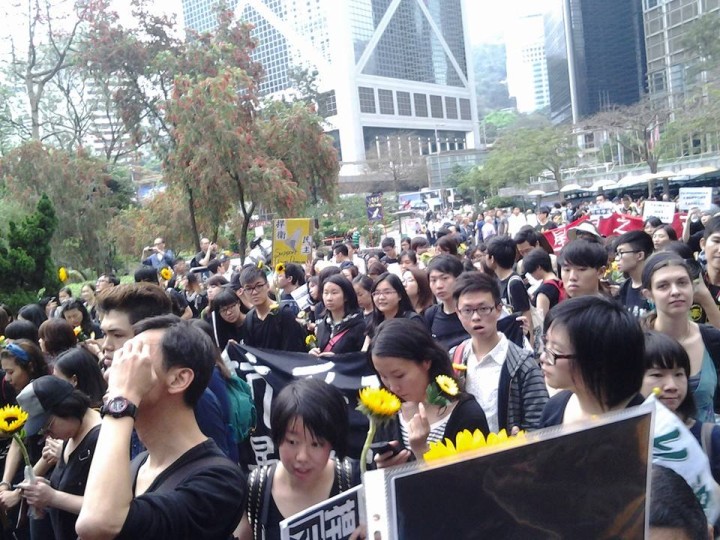Taiwan cannot be taken as an example of a good democracy just because you can choose your leader freely there, apparently, as distinct from the Hong Kong system where the leader cannot be voted in freely. If you like Taiwan’s Ma Ying Jeou you can vote him in, if not you can choose another idiot in the next election. But for me the Taiwanese system cannot be called a democracy. Of course like most “democrats” in Hong Kong, this opinion is rejected, but I think I am right.
By Lionel Mok
Not only is the Taiwanese system not democratic, it is even less democratic than that of Hong Kong, if Western democracy can be a yardstick at all.
Let’s start with the West. In Western democracies the parties are formed according to the type of interests you would like to represent. In other words, the kind of social class whose rights you want to protect. The communists (for countries that still allow them to exist) fight for the proletariat, the socialists (or the Labour Party) want the middle or lower middle class to do well, and the conservatives or the right wing parties are mindful about business interests. These parties mainly debate on issues that touch on the economy and little else.
Now let’s take a look at what happens in Hong Kong before we finally move on to Taiwan. Right now, the political scene is dominated by a Blue/Yellow division, especially after the Occupy Central event. The Blue camp is the pro-establishment, pro-Beijing faction made up of a number of parties, and they have the upper hand in the legislative council. The Yellow camp is the anti-government, anti-Beijing confederacy that opposes it.
But in both camps, you find the full spectrum of social classes whose rights that the different parties, whether they are blue or yellow, want to uphold.
In the Blue camp, you have the Liberal Party which is very business-minded. The New People’s Party, led by Regina Ip, lobbies mainly for the middle class. DAB is middle to lower middle class, and Hong Kong Federation of Trade Unions is the working men’s party.
What is amazing is that in the Yellow camp you have exactly the same set up. Although there is no party in that camp representing the upper class the Civic Party is actually made up of elite lawyers that serve the mercantile interests of elite businessmen of Hong Kong. You have the Democratic Party to its left appealing to the middle class people of Hong Kong, and HKCTU even further to the left having working class people as its main constituents.
The only issue that divides these two camps is whether they like China or not. The Yellow camp for some reason hates China, and the Blue camp tolerates her to say the least.
The problem with this kind of division is that you very often vote not according to what you think would be good for the people, but whether your love or hate of China requires you to vote in a certain way. Not only that, but issues are debated very often according to the “party” line but not rationally.
A very prominent example is that the legislator representing the IT Functional Constituency voted against the establishment of Information and Technology Bureau to the amazement of most of his constituents because he is on the Yellow side, but we cannot exclude the possibility of some Blue legislators supporting it because they feel an obligation to do it out of their love for China.
How about Taiwan? It is even worse. There are no parties representing upper class, middle class or grassroots people. There are only two parties, the Blue and Green parties (well, there are others, but they are even more extreme than KMT and DPP), and the division is based upon exactly the same factor as the one that divides Hong Kong: whether you like China or not.
The leader of the Green camp recently said, “why should we make suggestions to improve the livelihood of the people? We should just let KMT screw up so that the people will vote for us in the next election”.
Well, perhaps democracies in the West are becoming more and more engrossed in partisan interests and care for nothing else just like the Green Party in Taiwan; but at least they are not supposed to be so. Issues such as whether you like another country or not is basically non-partisan, like the European Union issues divide both the left and right in European countries.
The so-called Taiwan democracy is not democracy at all, at least in the Western sense of the word. It is more similar to the Anglican/Catholic divide that plagued England several hundred years ago.”










